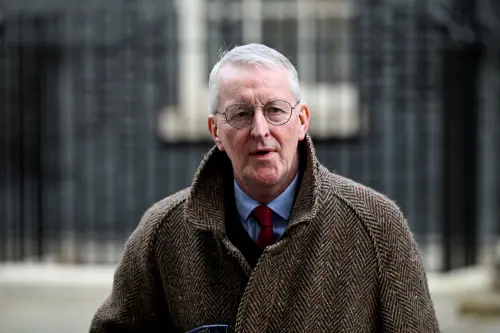Belfast, Feb 25 (Reuters) - The British and Irish governments are considering engaging in discussions with paramilitary groups still involved in criminal activities in Northern Ireland in a bid to encourage them to disband, announced Britain's region minister on Tuesday.
Despite the 1998 Good Friday Agreement effectively ending decades of sectarian violence and leading to the disarmament of major Irish Republican and pro-British loyalist militant groups, smaller factions persist in unlawful paramilitary actions.
The Independent Reporting Commission (IRC), responsible for monitoring paramilitary groups, revealed that these factions retain influence over certain communities, resorting to tactics such as coercion, extortion, and drug trafficking.
The IRC reiterated its recommendation for direct government interaction with paramilitary groups, advocating for a preliminary assessment by an independent specialist to appraise the feasibility of such a formal process.
Clarifying the government's stance, Britain's Northern Ireland minister Hilary Benn emphasized that this preliminary assessment does not mark the formal commencement of a process, noting that no financial incentives would be offered to these groups to curb violence.
Expressing skepticism towards the proposal, Northern Ireland's Justice Minister Naomi Long voiced concerns that this approach could jeopardize the progress achieved through existing political and law enforcement efforts aimed at delegitimizing the harmful activities of these groups.
Describing the proposal as "madness" and warning of a dangerous precedent, Long, who leads the cross-community Alliance Party, cautioned: "How would you feel if you were currently living in a community oppressed by these individuals, and the response from governments was simply to engage in dialogue with them."
Meanwhile, Britain's MI5 intelligence agency has downgraded the threat level in Northern Ireland from domestic terrorism from "severe" to "substantial", reflecting a reduced likelihood of an imminent attack.
